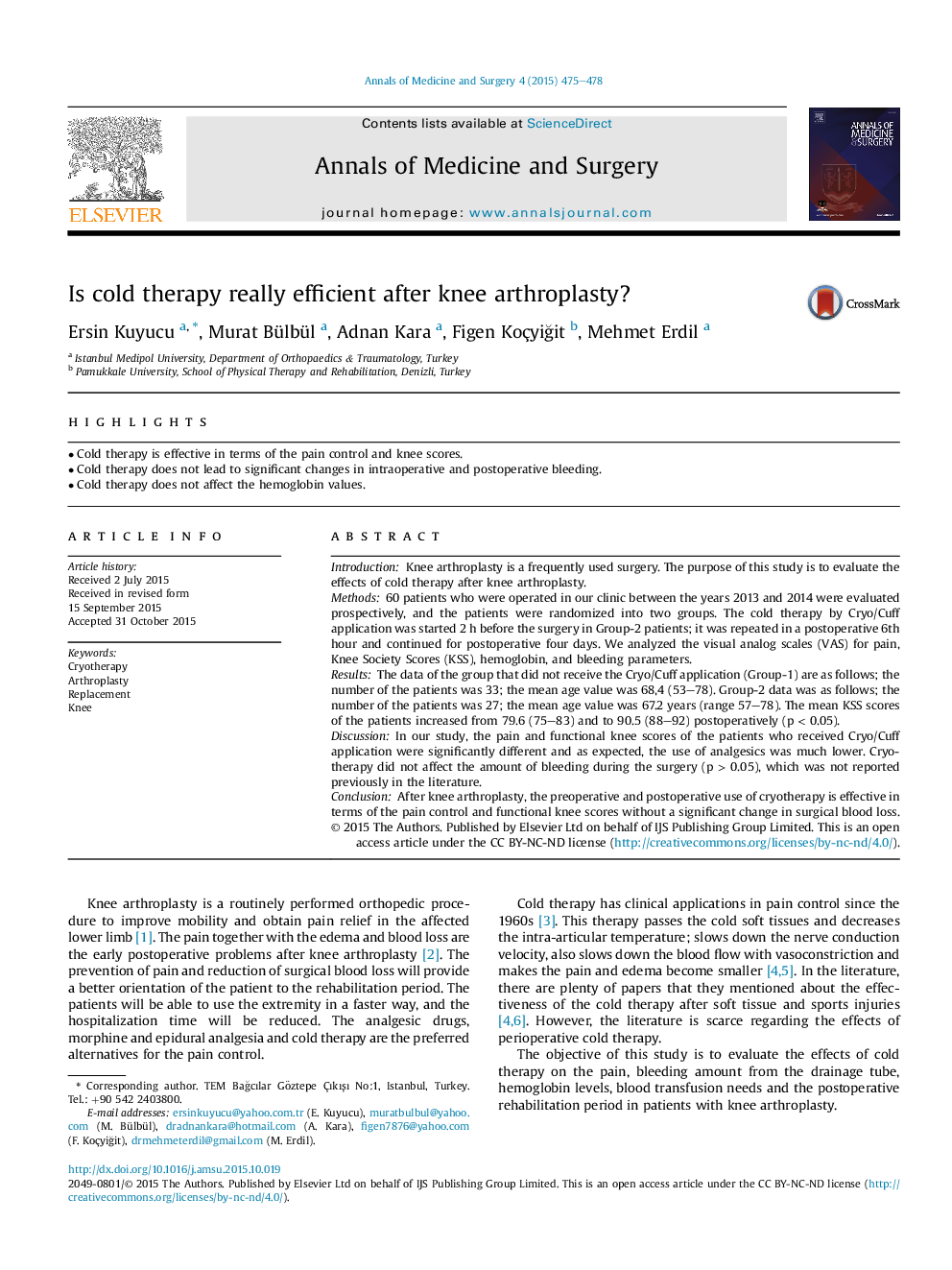| Article ID | Journal | Published Year | Pages | File Type |
|---|---|---|---|---|
| 4195334 | Annals of Medicine and Surgery | 2015 | 4 Pages |
•Cold therapy is effective in terms of the pain control and knee scores.•Cold therapy does not lead to significant changes in intraoperative and postoperative bleeding.•Cold therapy does not affect the hemoglobin values.
IntroductionKnee arthroplasty is a frequently used surgery. The purpose of this study is to evaluate the effects of cold therapy after knee arthroplasty.Methods60 patients who were operated in our clinic between the years 2013 and 2014 were evaluated prospectively, and the patients were randomized into two groups. The cold therapy by Cryo/Cuff application was started 2 h before the surgery in Group-2 patients; it was repeated in a postoperative 6th hour and continued for postoperative four days. We analyzed the visual analog scales (VAS) for pain, Knee Society Scores (KSS), hemoglobin, and bleeding parameters.ResultsThe data of the group that did not receive the Cryo/Cuff application (Group-1) are as follows; the number of the patients was 33; the mean age value was 68,4 (53–78). Group-2 data was as follows; the number of the patients was 27; the mean age value was 67.2 years (range 57–78). The mean KSS scores of the patients increased from 79.6 (75–83) and to 90.5 (88–92) postoperatively (p < 0.05).DiscussionIn our study, the pain and functional knee scores of the patients who received Cryo/Cuff application were significantly different and as expected, the use of analgesics was much lower. Cryotherapy did not affect the amount of bleeding during the surgery (p > 0.05), which was not reported previously in the literature.ConclusionAfter knee arthroplasty, the preoperative and postoperative use of cryotherapy is effective in terms of the pain control and functional knee scores without a significant change in surgical blood loss.
